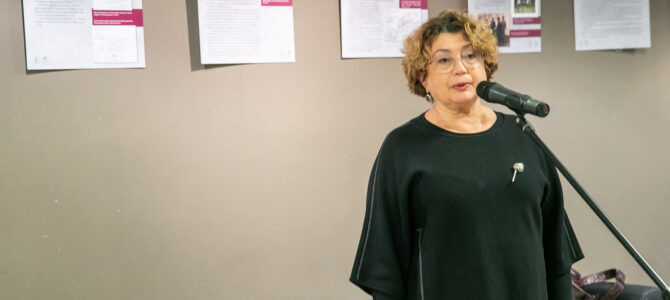Lithuanian Jewish Community chairwoman Faina Kukliansky participated in a commemoration at the Lithuanian parliament to mark the Day of Mourning and Hope and the Day of Occupation and Genocide, and also attended a ceremony at a memorial in Naujoji Vilnia.
“Lithuanian Jews didn’t just experience the tragedy of the Holocaust, but also the repressions of the Soviet regime. The system sought to do away with the Jewish national spirit and the values. All sorts of means were used to achieve this, including the deportations already mentioned, but also communal and personal property seizures, the monument at Ponar blown up because it bore an inscription in Yiddish, synagogues nationalized and the closure of the YIVO institute. The Sovietization of the educational system dealt a huge blow to Jews, with private and communal schools banned. Some of the Jewish schools were destroyed, others were made into state schools where Hebrew was no longer taught and the traditional ethnic curricula–Jewish curricula–formed over many years were abolished. In their place new subjects were introduced, including mandatory Russian language and classes on the constitution of the USSR. The goal was obvious: to erase and replace the identity of the Jewish people. So when we talk about these horrific days in June, we are talking about a tragedy for Lithuanian citizens, no matter what their ethnic identity,” chairwoman Kukliansky said.
June 14 to 18 are remembered in Lithuania as an especially brutal part of history which destroyed the lives of many people of Lithuania, including Lithuanians, Jews, Poles and Russians. There is a public misconception the deportations during those days in 1941 only affected ethnic Lithuanians. Actually more than 3,000 Jews from Lithuania were among the deportees. The Lithuanian Jewish Community marks this painful anniversary annually in common with all the people of Lithuania and we will not forget the pain inflicted on Lithuania during this period in 1941.


